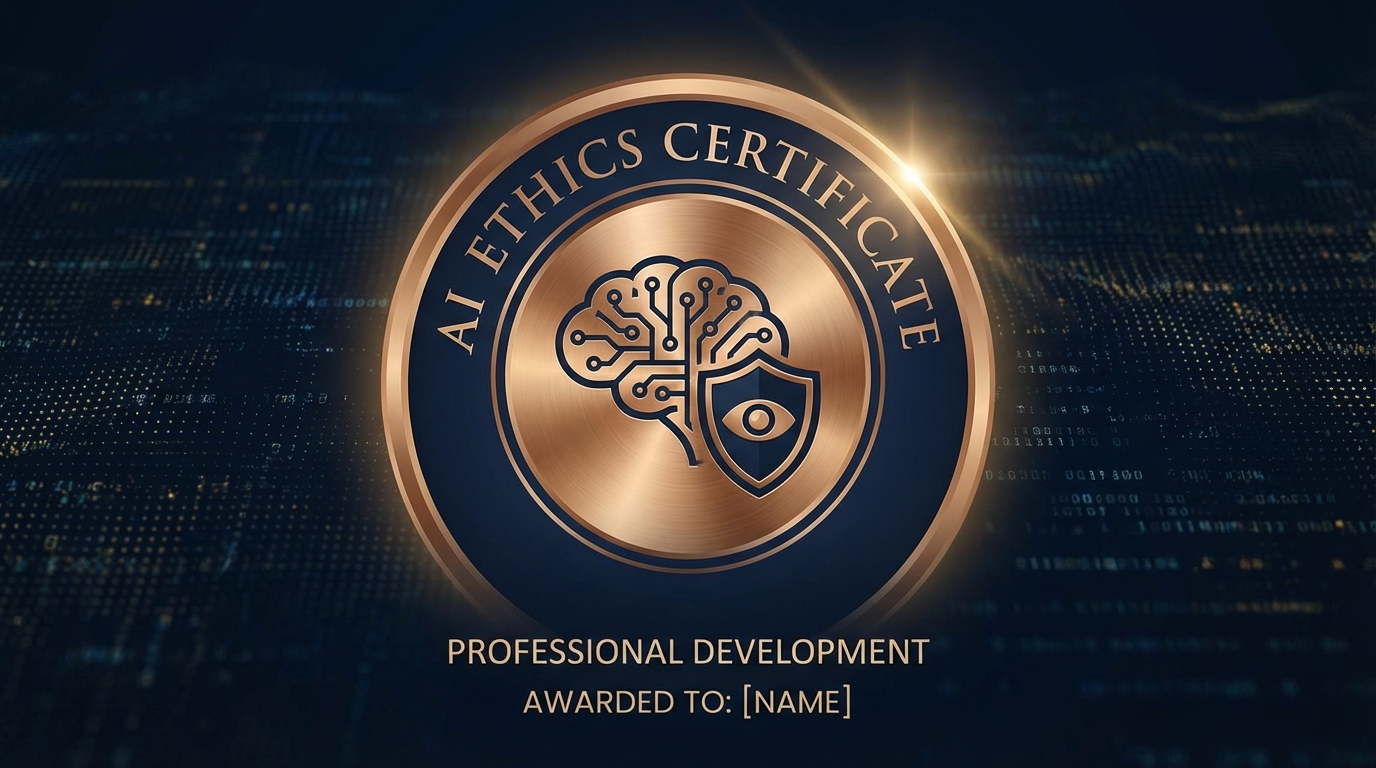Certificate in AI Ethics and Governance
December 02, 2023

Why IEEE CertifAIEd?
As AI advances, the need for trust and transparency grows. IEEE CertifAIEd is a premier program that equips professionals with the tools to navigate bias, fairness, privacy, and security in AI systems. It sets a high standard for rigor and stays current with emerging technological challenges.
The Certification Journey
- Enquiry: Scope and stakeholder goals are defined with an Authorized Assessor.
- Ethical Profiling: Identifying socio-technical values and risk profiles.
- Assessment: Gathering evidence to document conformity in a "Case for Ethics."
- Certification: Final review by an independent certifier.
Curriculum Highlights
The program covers four critical ontological specifications:
- Transparency & Accountability: Ensuring systems are explainable and responsible.
- Privacy: Protecting data and individual rights.
- Algorithmic Bias: Detecting and mitigating unfair outcomes.
After passing the exam, eligible candidates go through a detailed selection process, including an interview panel, to join the global registry of AI Ethics Assessors.